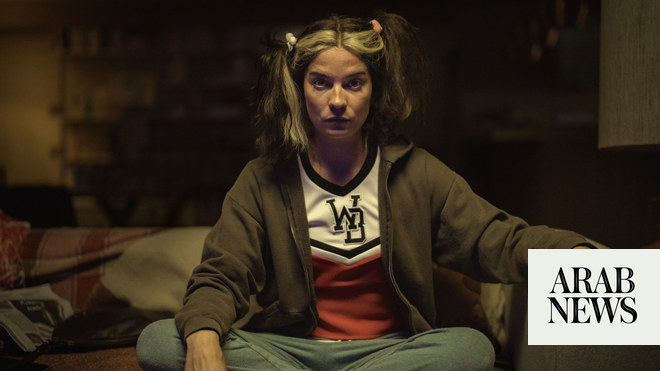
"Black Mirror" imagines a not-too-far-from-reality near-future to tackle big, often subversive, themes
For long-time fans, season five is unlikely to be a favorite.
DUBAI: British writer and TV presenter Charlie Brooker is known for his acerbic, cynical take on the modern world — from his reviews of television and current events on his “Wipe” series to the successful anthology show “Black Mirror” — season five of which landed on Netflix this month.
Judging by the three new episodes, it seems Brooker has mellowed. All have vaguely optimistic endings (at least by Brooker’s standards), even if the darkness at the heart of the show is still apparent.
Once again, “Black Mirror” imagines a not-too-far-from-reality near-future to tackle big, often subversive, themes: obsession, celebrity, loneliness, love, sexuality, death, marriage, friendship, and — most of all — the ways in which technology brings us together and tears us apart.
In “Striking Vipers,” two long-time friends, Danny and Karl, who had lost touch with each other are reunited by their love of the eponymous fighting game (which looks like a combination of “Mortal Kombat” and “Street Fighter”), but their late-night online VR-gaming sessions quickly become complicated, with awkward repercussions for their friendship.
Both Anthony Mackie (as Danny) and Yahya Abdul-Mateen II (Karl) put in stellar performances — as does Nicole Beharie as Danny’s wife — and the story is compelling, if a little clumsy.
The best of the three episodes is “Smithereens,” featuring the excellent Andrew Scott as Chris, a cab driver obsessed with an ubiquitous social-tech company (Smithereen) and its founder, Billie Bauer. Chris is so desperate to speak to Bauer (for reasons that we won’t reveal here) and take him to task for creating such an addictive communications platform, that he plots to kidnap a Smithereen employee at gunpoint and threatens to kill him unless Bauer agrees to a phone conversation. Scott’s performance is beautifully pitched — as is the plot.
The final episode has had the most media attention, probably because it has a megastar (Miley Cyrus) in the lead role. Cyrus plays a pop idol eager to escape from her carefully managed image and explore her creativity. The music industry has no intention of letting that happen, of course. While this episode has possibly the darkest humor on display, it also has the most “Hollywood” ending — to the detriment of the episode as a whole.
For long-time fans, season five is unlikely to be a favorite. It lacks the urgent rage that has characterized much of Brooker’s best work. That being said, “Black Mirror” remains smart, insightful, funny and disturbing. And well worth a watch.












